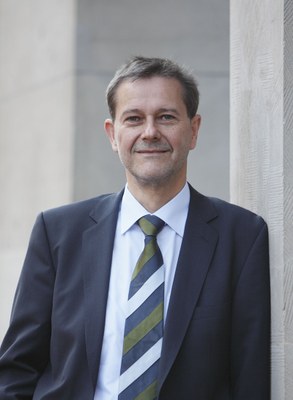Statement by Prof. Dr Jan-Hendrik Olbertz

Prof. Dr. Jan-Hendrik Olbertz
Figure: Matthias Heyde
I welcome the Imboden Commission’s proposals for the new Excellence Initiative. They will continue to bring more drive and international competition into the German HE system, without encumbering the universities or HEIs unnecessarily with an over-complex application procedure.
I also welcome the fact that the procedure to promote excellence clusters in future – in the longer term – will still be strictly focused on academic quality. Top-level research is thus still the core focus of the whole project. The commission rightly warns against diluting this requirement with other targets.
Joint effort by the federal government and the federal states
The reference to the role of university leadership and the development of suitable decision-making structures or steering mechanisms is worth particular mention, in my opinion. The Imboden Commission proposes that the ten best German universities should be awarded “excellence bonuses” to strengthen their governance. This recognises the fact that the university leadership’s task is to organise a setting that enables international top performance in academic work. This setting includes an equal balance of leadership and participative decision-making, and above all, fulfilling the creative potential of all members of the university.
In view of the federal structures of education and science in Germany, however, implementing this proposal will be challenging. It can only be achieved if both the federal government and the federal states acknowledge that the promotion of excellent academic work is a national task which cannot be accomplished by the federal states alone; it will require the joint efforts of both national and local bodies.
Important balance between “university differentiation” and “governance”
In the case of the second line of funding (“clusters of excellence”) it would certainly be worth considering how this approach could be made more “dynamic”, so that universities who come into consideration for funding may still be able to fulfil the requirements at a later date. It would also be a logical development of the third line of funding (“institutional strategy”) to provide successful clusters of excellence with a double overhead in future.
The good balance thus achieved in the report between “university differentiation” and “governance” is to be welcomed. Attaining this balance will be a permanent challenge for the university of the future.
Unfortunately, the report’s critical analysis of the teaching situation – particularly in relation to top-level research – includes very few indications that this will be taken into account to a greater extent in future in a new Excellence Initiative. The statement that “the Excellence Initiative makes no reference to Humboldt’s ideal of the unity of teaching and research, or does not explicitly emphasise the contribution top-level research makes to teaching (and vice versa)” does not apply to the Humboldt Universität zu Berlin’s institutional strategy, which pays specific attention to this relationship. In practice however the HU faces the same problem of the increasingly divergent development of research and teaching, particularly in the Excellence Initiative funding format. A few creative suggestions on this topic in the report would have been welcome.
Finally, a particularly important point is the recommendation that the application procedure for the new Excellence Initiative should not be placed under too great time constraints. If the procedure is to be quality-focused, competitive and science-driven, the remaining duration of the current Excellence Initiative funding period is too short. So the suggestion that all currently funded projects be extended by two years, using the time for evaluations and new applications, is a sensible one.
Further information
Internationale Expertenkommission zur Evaluation der Exzellenzinitiative – Endbericht (PDF)
Press contact
Hans-Christoph Keller
Spokesman of Humboldt-Universität zu Berlin
Head of Press and Public Relations Office
Tel.: +49 (0)30 2093-2946
hans-christoph.keller@hu-berlin.de
